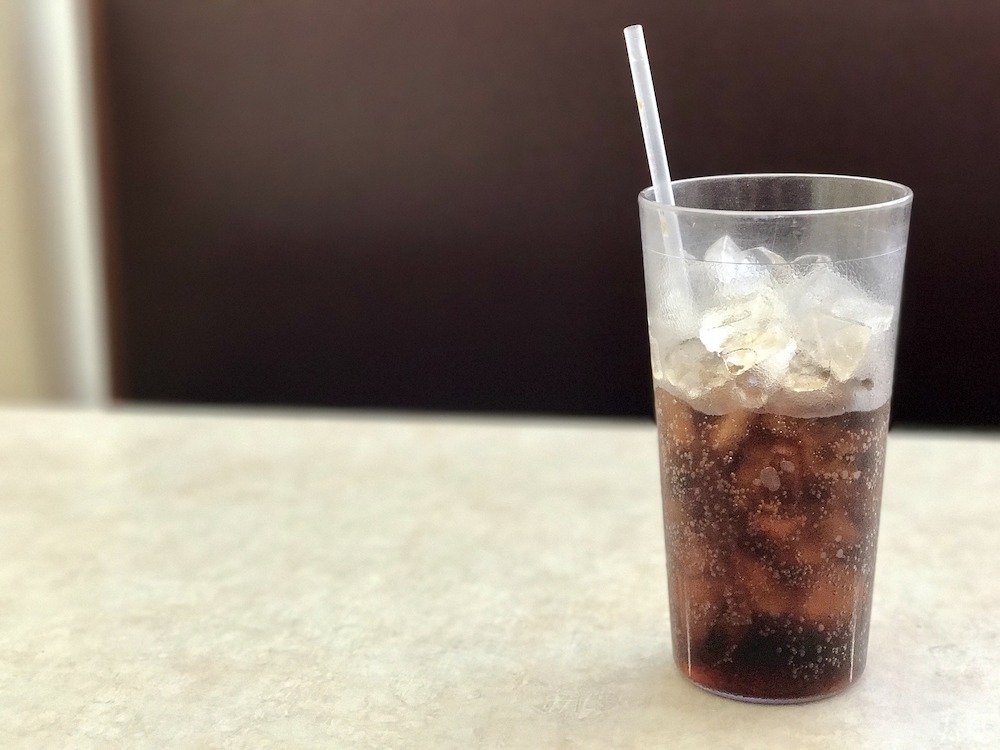The UK government began to look to tackle the issue of obesity in the country back in 2018

The proposed restrictions in the UK will be placed on items deemed to be high in saturated fat, salt or sugar (HFSS), which include soft drinks, cakes and chocolate (Credit: Shutterstock/Fortyforks)
In July 2020, UK Prime Minister Boris Johnson announced the government would be looking at initiatives designed to tackle obesity in the country, which includes placing restrictions on promoting high sugar and salt items.
The proposals also included new calorie labelling laws requiring large restaurants, cafes and takeaways with more than 250 employees to display calorie labels on the food they sell.
Speaking at the time, Johnson said: “Losing weight is hard with some small changes we can all feel fitter and healthier.
“If we all do our bit, we can reduce our health risk and protect ourselves against coronavirus – as well as taking pressure off the NHS.”
Health secretary Matt Hancock added: “Everyone knows how hard losing weight can be so we are taking bold action to help everyone who needs it.
“When you’re shopping for your family or out with friends, it’s only fair that you are given the right information about the food you’re eating to help people to make good decisions.
“To help support people we need to reduce unhelpful influences like promotions and adverts that affect what you buy and what you eat.
“Taken together, supported by inspiring campaigns and new smart tools, will get the country eating healthily and losing pounds.
“We know obesity increases the risk of serious illness and death from coronavirus – so it’s vital we take action on obesity to protect the NHS and improve our nation’s health.”
Five months later, the government outlined further details regarding some of these new restrictions.
Offers for unhealthy foods in the UK to be restricted from April 2022
The proposed new rules will prohibit retailers from offering multi-buy promotions such as “buy one, get one free” or “ three for two” offers on these products from April 2022.
Unhealthy promotions will also no longer be featured in key locations, such as at checkouts, store entrances, aisle ends and their online equivalents.
A major factor behind this is because, although promotions often appear to help shoppers save money, these deals increase purchases of promoted products by almost 20% – encouraging people to buy more than they need or intended to buy in the first place.
In addition, free refills of sugary soft drinks will also be prohibited in the eating-out sector.
Alongside this, Public Health England’s Better Health Campaign will run new adverts on TV and online to inspire and support people to maintain a healthy weight.
Public health minister Jo Churchill said: “We know families want to be presented with healthier choices.

“This is why we are restricting promotions and introducing a range of measures to make sure the healthy choice is the easy choice.
“Creating an environment which helps everyone eat healthier foods more regularly is crucial to improving the health of the nation.”
Obesity is seen as one of the biggest health crises in the UK with 63% of adults in England being overweight or living with obesity, while obesity-related illnesses cost the NHS £6bn ($8.2bn) a year.
The UK government believes these changes will make supermarkets and other retailers places where making healthy choices are easier for everyone and support people to lead healthier lives.
The proposed restrictions in the UK will be placed on items deemed to be high in saturated fat, salt or sugar (HFSS), which include soft drinks, cakes and chocolate.
It also includes the sale of confectionery items with sugar in it, ice cream, “morning goods” (such as pastries), puddings, sweet biscuits, crisps and savoury snacks, and chips in the UK.
The location restrictions see HFSS items not placed at store entrances, aisle ends and checkouts, however these will only apply to stores that are more than 2,000 square feet in size – while specialist retailers such as chocolate shops will be exempt.
UK government launches eight-week technical consultation on restrictions on high sugar and salt items
The UK government began to look to tackle the issue in 2018 when then Prime Minister Theresa May made a fresh push to try to tackle rising obesity levels among children in the country.
It set out a series of proposed measures including banning the sale of sweets and snacks at checkouts and fresh restrictions on advertising unhealthy food to children on TV and online, which were open for consultation at the end of 2018.
It’s most recent proposals are now up for an eight-week technical consultation, with the government seeking views from industry stakeholders and enforcement bodies on how these policies can be implemented.
Trade body the Food and Drink Federation’s (FDF) chief operating officer Tim Rycroft said: “Since these ideas were first mooted some 18 months ago, the FDF has produced copious evidence of the devastating impact these proposals will have for both industry and shoppers.
“The proposed restrictions will not only increase the cost of food for families but it will have harsh economic impacts for food and drink manufacturers who are already bracing themselves for the new costs of Brexit and the repercussions of the global pandemic – all for an average daily 15-calorie reduction.”
